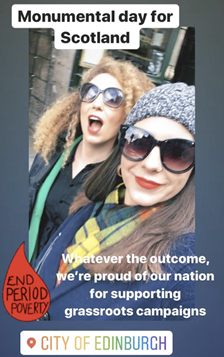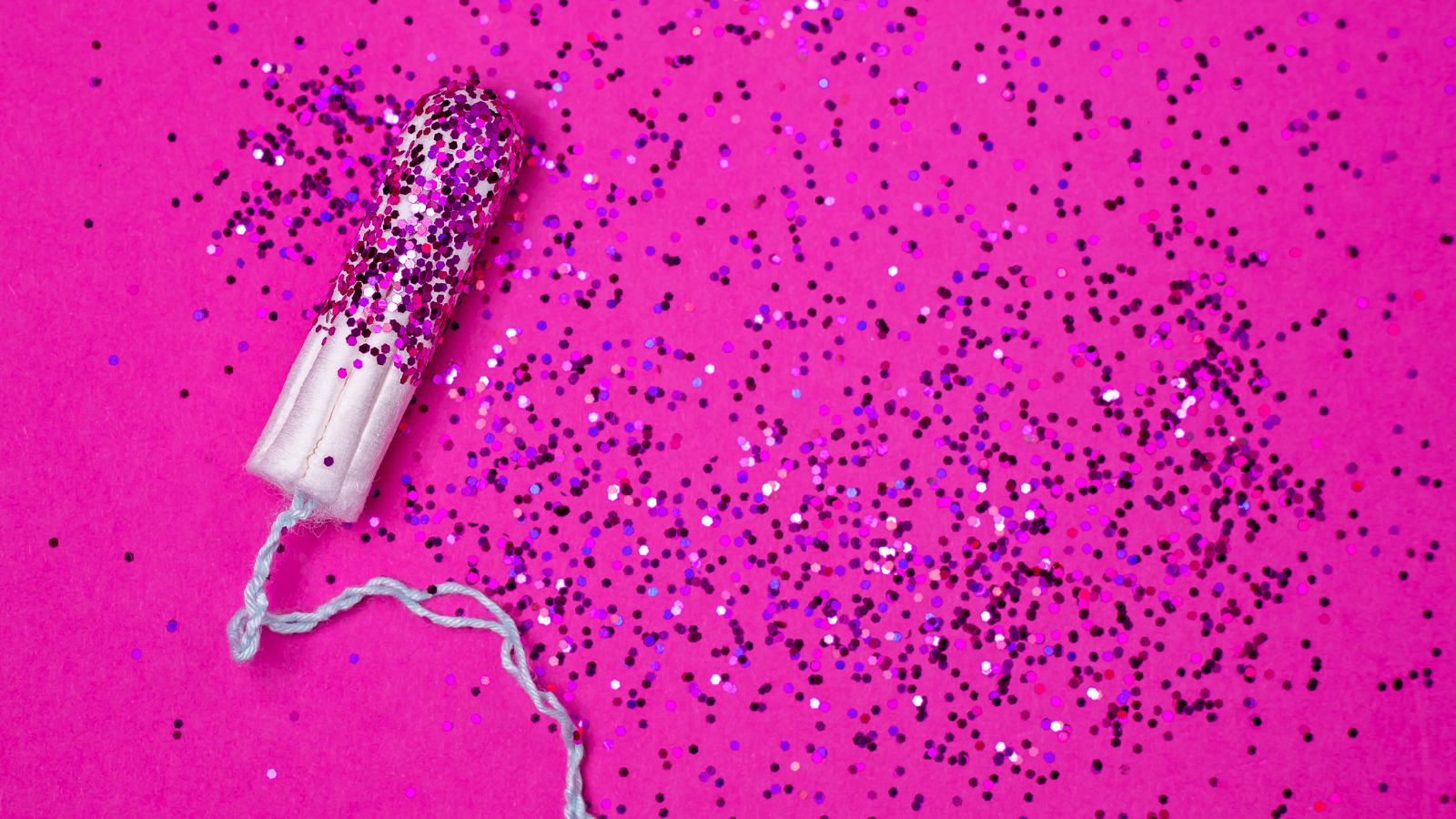Periods don’t pause for pandemics, so in this blog Dr. Jennifer S. Martin and Victoria Heaney explain the connections between menstruation and COVID-19. They also celebrate their latest policy win – the Scottish Parliament Bill to ensure items such as tampons and sanitary pads are available for free to all people that menstruate. A piece of good news to start your year with!
The COVID-19 pandemic has impacted the lives of millions of people around the world, tested our health systems and exacerbated the structural and social inequalities faced by vulnerable populations. Women and girls are disproportionately affected by pandemics as they are often faced with a double burden of income-generating work and the care of dependents. They are at a greater risk of experiencing gender-based violence particularly during lockdowns, where they could be housed with their abuser. Additionally, they can suffer from reduced access to essential services such as maternal health services and sexual and reproductive health services. Women also make up 70% of the health workforce and without adequate access to period products could face challenges in delivering quality care.
Period poverty
Period poverty is a global issue affecting women, girls and other people who menstruate who do not have access to safe, hygienic period products, for example people living in low-income households, those who do not have access to household finances, and people who do not have the physical means to access period products. Period poverty can affect any person that menstruates. The harsh reality is that the COVID-19 pandemic will exacerbate the social determinants which underpin period poverty. Many people will lose their livelihoods as a result of this pandemic and this will influence household incomes, directly or indirectly impacting an people’s ability to afford or prioritize period products.
No person that menstruates should have to experience the stigma or shame associated with a lack of access to period products, neither should they have to choose between providing food for themselves or period products.
Period pride

Amid the COVID-19 pandemic, the Scottish Parliament (Pàrlamaid na h-Alba) unanimously voted in a gender-responsive policy that could have a lasting impact on the lives of all those that menstruate. The Period Products (Free Provision) (Scotland) Bill puts a legal duty on the 32 Scottish local authorities to ensure that free items such as tampons and sanitary pads are available to all people that menstruate across Scotland. The bill was introduced by Labour MSP Monica Lennon and was the product of multiple grassroots advocacy initiatives efforts across the nation since 2015. Supporting pivotal gender-transformative policies like the Period Products (Free Provision) (Scotland) Bill in the context of COVID-19 is imperative if we want to build back better for individuals that menstruate.
Image: Pre-COVID-19 – Jenni and Vicky on their way to the Scottish Parliament for Stage One of the Bill.
Period policy in practice
So, what’s next for the Period Products (Free Provision) (Scotland) Bill?
Ensuring that local authorities have the support that they need to translate the policy into practice is vital. Scotland, like most nations, has a highly heterogeneous population with differences in culture, race, geography and socioeconomic status. Optimising accessibility by designing programmes that capture the most vulnerable in the community, including those that lie outside the health or social care system is essential if we want this policy to have a high impact.
Decentralising access points and raising the visibility of services could support uptake, but the buck does not stop there. This policy will need a proper monitoring system that captures the nuances of implementation so it can be properly evaluated. Exploring how each local authority is identifying and reaching the most vulnerable in their localities could facilitate better access. Avoiding a reporting system that centres on the collection of quantitative data such as how many products were delivered could move this exercise away from a “tick-box-initiative” to a sustainable and impactful gender-responsive policy that could positively impact the lives of all those that menstruate.
Period positive
Enshrining this policy in law and implementing if effectively is a step in the right direction for gender equality. Not only will it positively influence the lives of those that menstruate across Scotland, but it also sets the mandate for policymakers worldwide.
Periods do not stop for pandemics, but we do have a social responsibility to ensure that they do not hamper the efforts of health workers, caregivers or anyone that is experiencing challenges during this pandemic. Period poverty activists in Scotland have demonstrated that grassroots advocacy can translate into policy, and the Scottish Parliament has demonstrated its commitment to people that menstruate in the context of COVID-19. Together, we can put an end to period poverty.
Acknowledgements
We would like to pay special regards to all the women-led grassroots advocacy movements across Scotland that made this policy a reality.
Dr. Jennifer S. Martin is a Scottish Menstrual Rights Activist and the Co-Founder of Women in Global Health Finland. She is the Global Project Director for the COVID 50/50 Campaign at Women in Global Health, and she is currently completing her NIHR-funded PhD at the University College London Great Ormond Street Institute of Child Health.
Victoria Heaney is the creator of #FreePeriodScotland, a national research project which illuminated historical and real time barriers faced by women, girls and people who menstruate accessing period products. She is known for her role in politicising periods, which enabled rapid creation of policy and legislation making Scotland a world leading period positive country. She is currently working on a strategic community response regarding the effects of digital inequality as a result of COVID-19.
This image is licensed under the Creative Commons Attribution-Share Alike 3.0 Unported license.






